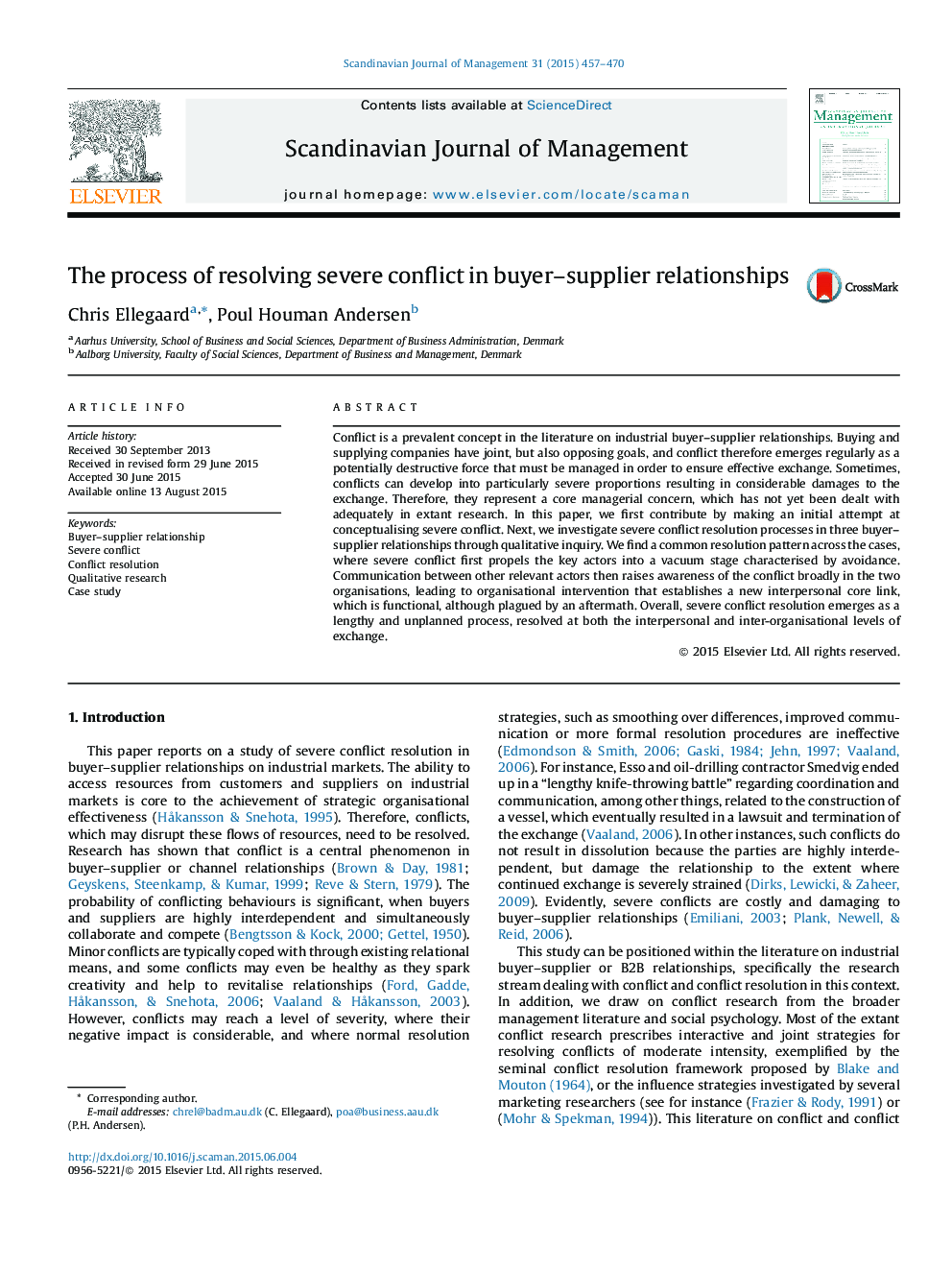| Article ID | Journal | Published Year | Pages | File Type |
|---|---|---|---|---|
| 895764 | Scandinavian Journal of Management | 2015 | 14 Pages |
Conflict is a prevalent concept in the literature on industrial buyer–supplier relationships. Buying and supplying companies have joint, but also opposing goals, and conflict therefore emerges regularly as a potentially destructive force that must be managed in order to ensure effective exchange. Sometimes, conflicts can develop into particularly severe proportions resulting in considerable damages to the exchange. Therefore, they represent a core managerial concern, which has not yet been dealt with adequately in extant research. In this paper, we first contribute by making an initial attempt at conceptualising severe conflict. Next, we investigate severe conflict resolution processes in three buyer–supplier relationships through qualitative inquiry. We find a common resolution pattern across the cases, where severe conflict first propels the key actors into a vacuum stage characterised by avoidance. Communication between other relevant actors then raises awareness of the conflict broadly in the two organisations, leading to organisational intervention that establishes a new interpersonal core link, which is functional, although plagued by an aftermath. Overall, severe conflict resolution emerges as a lengthy and unplanned process, resolved at both the interpersonal and inter-organisational levels of exchange.
